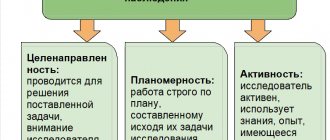Commentary on Article 40 of the Criminal Code of the Russian Federation
Coercion is any action on a person with the aim of depriving him of his will. It is possible to force a person to commit an illegal act only under strong pressure.
Coercion can manifest itself in the following ways:
- Physical.
- Mental.
Physical coercion manifests itself in the form of torture, beatings, and the administration of psychotropic drugs. Mental coercion can manifest itself in threats, intimidation of the person himself, and there may also be threats of causing physical or moral suffering to relatives.
The presence of physical coercion is a basis excluding a crime in the following cases:
- the physical impact is irresistible;
- physical compulsion has a direction;
- there is physical coercion;
- the coercion is real.
Irresistibility is understood as such an action on a citizen that completely deprives a person of his will. This circumstance leads to the fact that a person does not resist the coercer. The reality of coercion is manifested in the fact that there is a real object of violence, and not some fictional character.
Direction means that coercion is carried out by influencing the right to inviolability of a person’s body, because of which the person is not able to direct his actions.
The presence of pressure is characterized by the fact that there is a time interval of influence on a person, and at the same time the action continues.
Mental coercion in criminal law is an effect on the human psyche. At the same time, the person does not fully control his actions. A special place is occupied by influence through the use of hypnosis. The article of the Criminal Code of the Russian Federation classifies moral pressure on a person as a surmountable factor. But, for example, hypnosis completely deprives a person of acting independently and therefore excludes criminal punishment.
For example, the threat of dismissal from work is considered an overpowering force, since a person can choose what to do - comply with the demands of the coercing person or report the fact of psychological coercion to law enforcement agencies.
Overcome coercion does not entail liability in circumstances where there were conditions of extreme necessity. The conditions for excluding liability are described in the commentary to Art. 39 of the Criminal Code of the Russian Federation.
Judicial practice shows that the article is not applied independently; as a rule, the type and amount of punishment is determined by a combination of various articles.
If there was a fact of coercion against a person to commit illegal actions, and a crime was committed, then the following measures must be taken:
- Contact law enforcement agencies to testify.
- Contact a qualified lawyer.
The article of the Criminal Code of the Russian Federation covers physical and psychological violence in full, but in practice it is difficult to determine whether insurmountable or surmountable coercion took place.
Only a qualified lawyer can give a legal assessment and legality of applying certain sanctions against a person subjected to coercion.
>Psychological Pressure on a Person Article of the Criminal Code of the Russian Federation 128.1
Features of psychological violence from the point of view of legislation
Threat is another aspect of psychological violence. This concept is discussed in Article 179 of the Criminal Code of the Russian Federation. According to this regulatory document, criminally punishable methods of coercion are:
- threat of violence;
- threat of destruction or damage to property;
- threat of disseminating information that could harm the victim.
In this case, the threat must be real. This means that the victim has every reason to fear its implementation. In practice, it is very difficult to prove psychological violence. Such cases rarely go to court, although the victim has the right to file a claim for compensation for moral damage.
Most often, psychological pressure is accompanied by physical violence. If it is represented by beatings, torture, infliction of mild or moderate health, then the offender will be tried under the above-mentioned Article 179.
In the presence of physical violence, the chances of bringing the perpetrator to justice increase significantly. But even in this case, the victim must prove the fact of bullying. To do this, you should contact a medical center to film the beatings and enlist the support of witnesses.
Article 128
At the same time, in Part 2 of Art. 10 of the said Convention states that the exercise of these freedoms, which imposes duties and responsibilities, may be subject to certain formalities, conditions, restrictions or sanctions that are provided by law and are necessary in a democratic society in the interests of national security, territorial integrity or public order, in order to prevent riot or crime, to protect health or morals, to protect the reputation or rights of others, to prevent the disclosure of information received in confidence, or to ensure the authority and impartiality of justice. Moreover, the provisions of this norm must be interpreted in accordance with the legal position of the European Court of Human Rights, expressed in its decisions.
4. The dissemination of information discrediting the honor and dignity of another person should be understood as the publication of such information in the press, broadcast on radio and television, demonstration in newsreels and other media, distribution on the Internet, as well as using other means of telecommunications , presentation in official characteristics, public speeches, statements addressed to officials, or communication in one form or another, including oral, to at least one person. The communication of such information to the person to whom it concerns cannot be recognized as its dissemination if the person who provided the information took sufficient confidentiality measures so that it does not become known to third parties.
Psychological Pressure on a Person Article of the Criminal Code of the Russian Federation 128.1
- shall be punishable by a fine in the amount of up to five hundred thousand rubles, or in the amount of the wages or other income of the convicted person for a period of up to six months, or by compulsory labor for a period of up to one hundred and sixty hours.
- Defamation contained in a public speech, publicly displayed work or mass media,
In part 2, 3 and 4 tbsp. 128.1 of the Criminal Code of the Russian Federation provides for liability for qualified and especially qualified types of this crime. The legislator distinguishes slander contained in a public speech, publicly displayed work or in the media (Part 2 of Article 128.1 of the Criminal Code of the Russian Federation). The media means newspapers, magazines, almanacs, bulletins, other publications that are constantly published, radio, television, video and audio cassettes intended for an unlimited circle of people, etc. (see: Law of the Russian Federation of December 27, 1991 N 2124-1 “On the Mass Media” (as amended on July 28, 2012) (with amendments and additions coming into force from September 1, 2012) // Russian Air Force. 1992 No. 7. Art. 300).- Defamation contained in a public speech, publicly displayed work or in the media is punishable by a fine in the amount of up to one million rubles or in the amount of the wages or other income of the convicted person for a period of up to one year, or by compulsory labor for a period of up to two hundred and forty hours.
- Slander that a person suffers from a disease that poses a danger to others, as well as slander combined with accusing a person of committing a crime of a sexual nature, is punishable by a fine in the amount of up to three million rubles or in the amount of the wages or other income of the convicted person for a period of up to three years or compulsory work for a period of up to four hundred hours.
All related circumstances are taken into account. The punishment for causing a nervous breakdown is determined based on the harm that was caused to the victim. In this case, physical and moral aspects are taken into account. The situation is significantly aggravated if all the actions were committed by a group of persons by prior conspiracy.
Hello, please tell me what should I do and where should I go? I lived with a man for six months and borrowed money from him, wrote a receipt, but the terms were not stated in the receipt. There was a verbal agreement to repay the debt, he said not to rush into repayment, as If I collect the required amount, I must give it back. At the time of my marriage with him, he was going through divorce proceedings with his official wife. After 4 months, the situation is this: we are not together, I am collecting money, but he starts calling, including from his number phone, write messages on the phone, on all social networks and applications, his ex and current wife. Messages with insults and psychological pressure against me and my child, and on the phone threats and demands to return the money to her. There are no specific threats in the messages, only by phone, intimidates him with her connections (she is a former police officer, and now works in the city administration). He does not make contact (she picks up his phone) After all, I have to return the money to him, not to her.
Types of psychological pressure
There are several types of psychological pressure, each of which requires special attention to its management and evasion strategies. Let's list the most common types of pressure, and then we'll talk about how to resist them.
The first of them, the most simple and undisguised, is coercion. Coercion can be used by a manipulator who has imaginary or real superiority over his victim. This could be a boss threatening to fire you, or a back-street bandit threatening with a knife. Both are nothing more than coercion.
Humiliation (or humiliation) is the second type of psychological pressure. For him, the manipulator gets personal, insults (probably even publicly), emphasizes painful shortcomings for the victim: appearance, illness, marital status, etc. The most base and offensive words are chosen, which are designed to “crush” the victim of manipulation. How does this work for a manipulator, what would a humiliated person want to do for the person who told him so much? It’s very simple: after the nasty things have been voiced, the manipulator immediately offers a way through which the humiliated victim can rise in the eyes of society - to carry out the proposed assignment.
The next pressure technique is avoidance. In this case, an implicit manipulation is carried out, and when the victim tries to clarify the situation, the manipulator indignantly waves it away. Thus, the victim of manipulation is created with “cognitive dissonance” - an unpleasant feeling that she is doing something wrong. In an effort to get rid of this feeling, a person fulfills any requests of the manipulator.
Suggestion and persuasion are options for using psychological pressure. In this case, the manipulator must have some kind of influence on the victim: either have unconditional authority in her eyes, or be a person well known to her. Suggestion is more focused on emotions. The manipulator may use phrases like “Listen to me, I know for sure...”, or “Don’t you trust my opinion...”, or “I only wish the best for you, so...”.
In this case, the psychological suppression of a person occurs as if out of good intentions, as a result of which the victim adopts the imposed opinion and begins to consider it his own. Conviction is characterized by rationalization, i.e. they try to convince a person of something using the arguments of logic, sometimes quite perverted. The number of arguments, both real and imaginary, reaches such a quantity that the victim’s brain simply gets tired of perceiving the information critically and automatically agrees.
Thanks required. This is a variant of long-term psychological pressure. The manipulator first provides the victim with a service: one that he was not asked for and which did not really cost him anything. He can regularly provide such imaginary “help” to the victim, ingratiating himself with the victim’s trust. The moment the manipulator needs something from the victim, the request to “return the favor” comes into play. The request can become quite intrusive and turn into threats if the victim does not agree to the terms immediately.
VII International Student Scientific Conference Student Scientific Forum
I said that a socially dangerous act can appear in two forms: in action and inaction. A criminal act is a socially dangerous, but conscious, volitional and active behavior of a person. From the above definition, we can say that a person consciously acts this way, knowing at the same time that certain consequences may occur.
For example: Private prosecutor Grishakina S.A. appealed to the magistrate with a statement asking to prosecute E.P. Meleshina, who on December 12, 2012 at 11.00 o’clock. in the premises of the administration of the Novoyamsky rural settlement, she accused her of calling her “The Enemy of the People”, accused her of not carrying out work to clean the road in the winter, and also of the fact that in the village. The Novoyamskaya Sloboda House of Culture is closed and no events are held. Believes that by disseminating these statements by Meleshin E.P. undermines her reputation and authority as the Head of the Novoyamsk rural settlement, discredits her honor and dignity.
How to resist psychological pressure?
It should be understood that manipulators are not guided by a special list that says how to put psychological pressure on a person. This means that the manipulator does not choose only one method of pressure - in life there can be the most sophisticated combinations of strategies that change as they influence the victim. These methods are chosen depending on the inspiration and degree of depravity of the manipulator, i.e., practically nothing limits his imagination.
In this regard, coping strategies must be flexible. To know how to resist psychological pressure, you need to recognize that it is being put on you. Sometimes this is very difficult to do: as already mentioned, there are a lot of ways to exert psychological pressure on a person and they can form the most unexpected combinations. Therefore, you need to regularly ask yourself the question: am I doing this because I want to, or does someone else want it? If, when answering a question, you feel some fragmentation, duality, if your motivation is dictated from the outside by a specific person, this is a sign that pressure is being put on you.
Psychological pressure can be defeated by resorting to straightforward resistance. However, this does not work for all manipulators, and not every victim can maintain a “fighting spirit.” A straightforward response implies that the victim, aware of his situation, tells the manipulator that his demands are unrealistic or undesirable. Some manipulators can be confused by directness and admit defeat, but in many cases the victim can be immediately entangled in a network of less obvious manipulations, accept the feeling of guilt imposed on her and become mired even deeper in the ambitions of others.
Work on yourself and your self-esteem. It is no secret that it is easier to put psychological pressure on a person if he is not confident in himself and his own abilities. It is almost impossible to independently reach a higher level of your life, especially for a person who is already under pressure, so in such situations the intervention of a specialist is necessary.
The psychologist conducts trainings and practical sessions on personal growth, and also helps people who have fallen under the influence of manipulators to realize their own goals and learn to avoid pressure from others. Specialist help is especially required if the toxic environment includes the victim’s immediate circle of friends – family or loved ones. A psychologist, such as Nikita Valerievich Baturin, will teach you how to resist the psychological pressure of your husband or parents without destroying family ties.
Criminal Code of the Russian Federation
Falsification of election documents, referendum documents, deliberately incorrect counting of votes or deliberately incorrect determination of the results of elections, referendums, violation of the secrecy of voting, if these acts were committed by a member of the election commission, initiative group or commission for holding a referendum, are punishable by a fine in the amount of five hundred to seven hundred minimum wages. the amount of remuneration or in the amount of wages or other income of the convicted person for a period of five to seven months or by imprisonment for a term of up to four years.
1. Illegal use of objects of copyright or related rights, as well as appropriation of authorship, if these acts caused large-scale damage, is punishable by a fine in the amount of two hundred to four hundred times the minimum monthly wage, or in the amount of the wages or other income of the convicted person for a period of two to four hundred times the minimum wage. four months, or compulsory labor for a term of one hundred eighty to two hundred and forty hours, or imprisonment for a term of up to two years.
What is the penalty for insulting a person?
Since insult is legally defined as a criminal act, the regulation of issues arising in connection with this offense is carried out within the framework of Art. 130 of the Criminal Code of the Russian Federation. This article gives a general definition of the concept and also indicates the types of punishments provided for by law for insult.
Psychological pressure: protection against manipulation in several steps
Psychological pressure is more difficult to recognize than to overcome. If you know exactly who is putting pressure on you and on what issues, a few simple defense techniques will help you. They may seem insignificant, but if you are aware of what and why you are using them, they will work. Techniques against psychological pressure are as follows:
- Create “barriers.” If you feel that an unpleasant conversation is starting, in which they will try to “crush” you, place various objects between yourself and the interlocutor. An ashtray, a chair, a cup, a cell phone - any, even insignificant, object on the way from the manipulator to you can become your mental “protection” and an obstacle to aggressive influence.
- Take closed poses. Cross your legs, cross your arms, place your finger on your lips or eyebrows, and support your face with your palm. All these natural barriers that you create with your own body on the path of aggressive influence will help you think more critically in relation to what the interlocutor imputes to you. In addition, these poses give confidence.
- Create mental barriers. Draw a circle near you with your imagination, stand up a dome or wall, you can mentally put yourself in a spacesuit. Imagine that behind an imaginary barrier there is your safety zone, where no one can penetrate, no matter how hard he tries.
- Distract the manipulator's attention. Move objects in front of him, perform various manipulations, cough, yawn, stretch: show any physical activity that will not allow your opponent to concentrate on what he is saying. The main thing is not to overdo it, because everything should look natural.
- Introduce your interlocutor in a funny way. For example, mentally put a jester's hat on your important boss or make him a screaming penguin. As long as you're focused on creating a funny image, you won't have time to be afraid, which means you'll have more opportunity to process and confront incoming information.
The listed techniques will help you gain confidence and find the mental resource to resist the manipulator. These techniques can be used constantly, but they are not enough to constructively discuss a controversial topic and unconditionally regain the advantage in the situation.
Specifics of prosecution under the article for insult to personality and humiliation of human dignity
- For humiliation of human dignity:
- a citizen of the Russian Federation - fine payments in the amount of 1-3 thousand rubles;
- by an official - fines in the amount of 10-30 thousand rubles;
- a legal entity - fines in the amount of 50-100 thousand rubles;
- Insulting through public speaking or involving the media and printed publications:
- a citizen of the Russian Federation will pay from 3 to 5 thousand rubles;
- the official will pay from 30 to 50 thousand rubles;
- a legal entity will pay from 100 to 500 thousand rubles;
- If it is proven that measures have not been taken to prevent the spread of insults through the media, television, radio, works for public display, etc.:
- official, he will be sentenced to a fine of 10 to 30 thousand rubles;
- legal entity, he will be sentenced to a fine of 30 to 50 thousand rubles.
Human dignity is understood as his self-awareness in society, the attitude towards him of outsiders from his immediate or distant surroundings. Outsiders' opinions about personality. The presence of certain moral, moral and individual skills and qualities for which friends, relatives, colleagues, etc. value him. The level of social value of the dignity of an individual of any social status does not matter. A person’s honor needs to be protected by the law, even if he himself is not very good at his core. The slightest disparagement or slander, provided there is sufficient evidence, will be punishable by law. As we have already said, punishment will be imposed for insult, even if the humiliating words were inherently true. The main thing here is that the following facts are present:
26 Jan 2022 etolaw 753 Share this post









